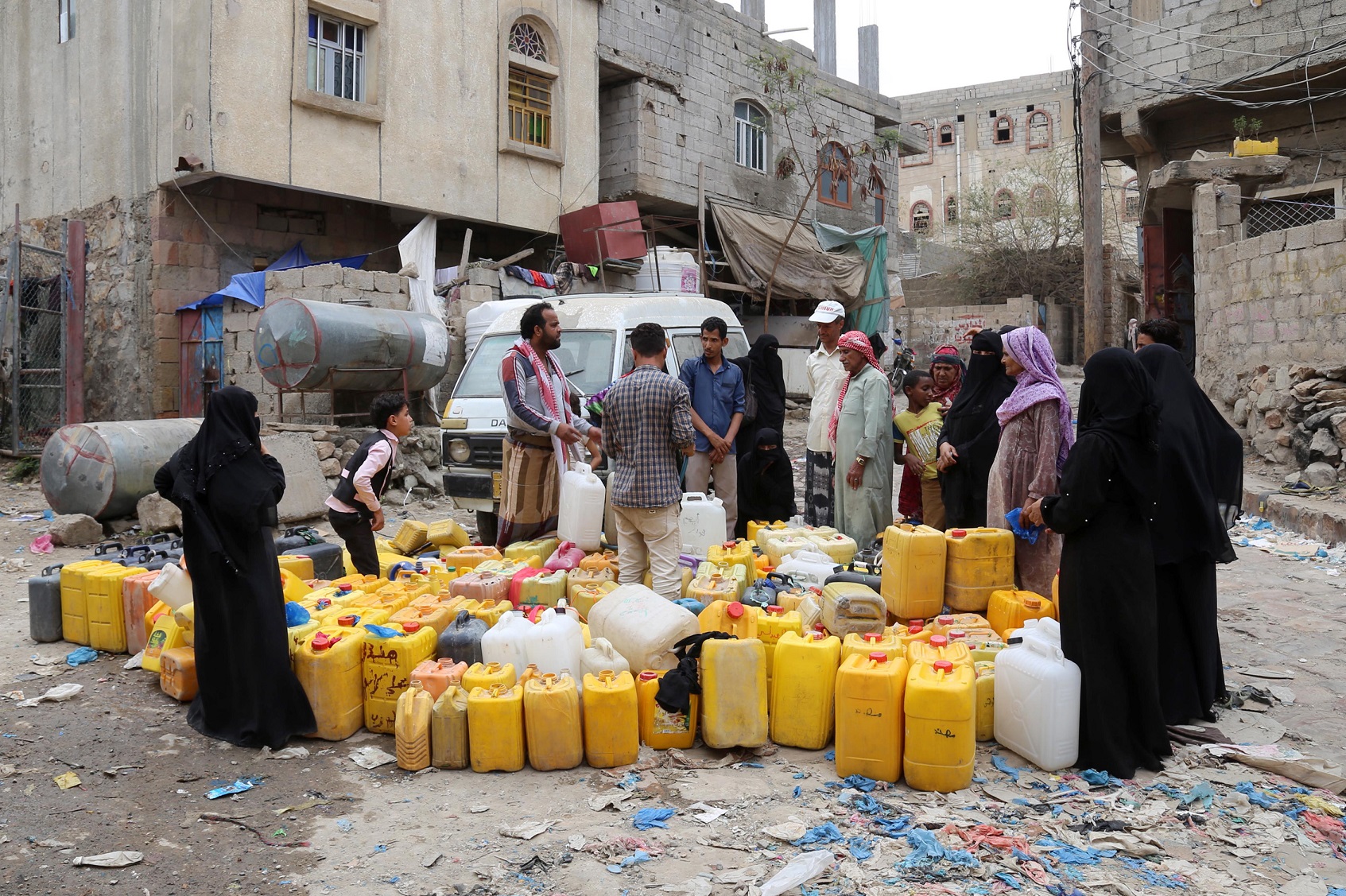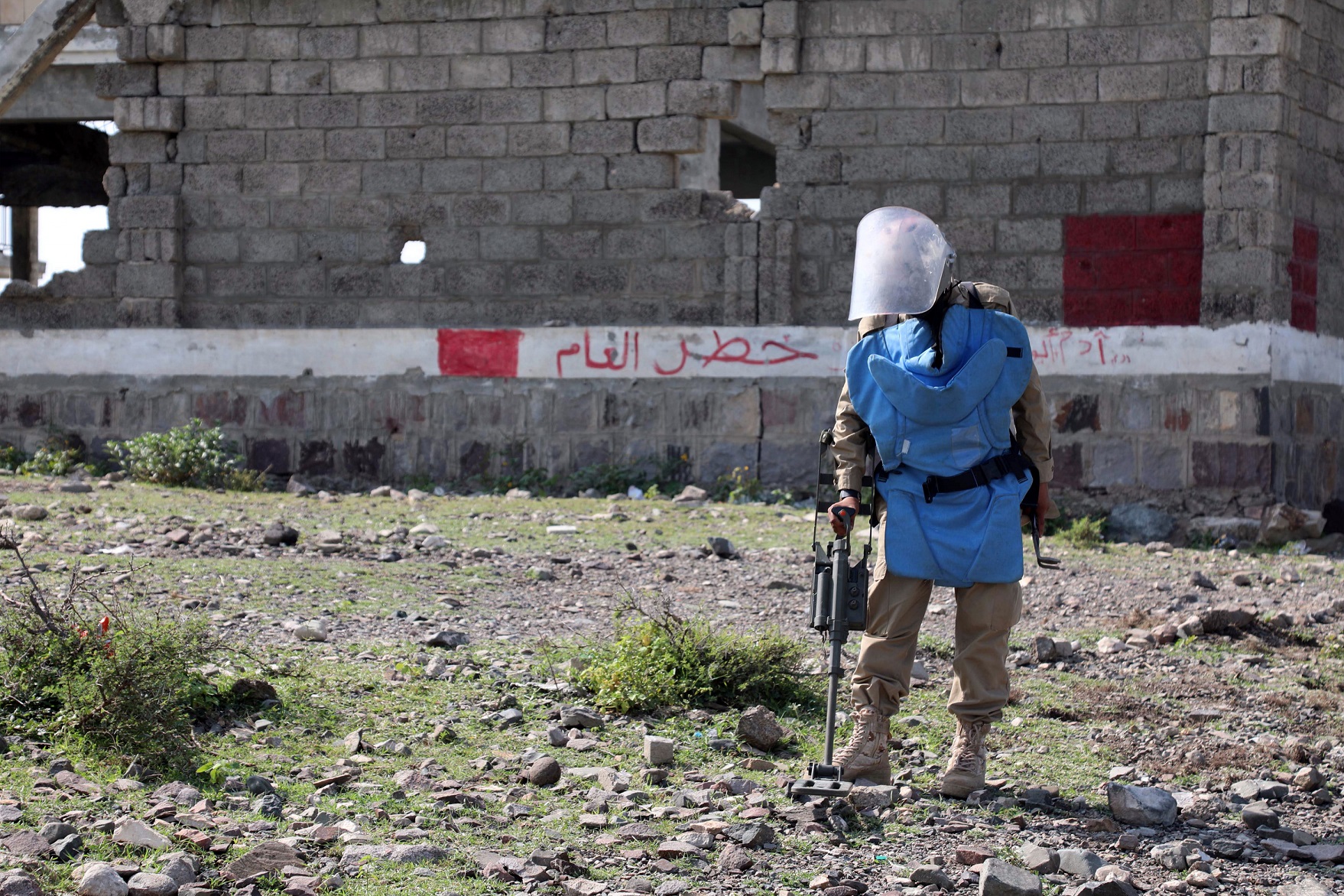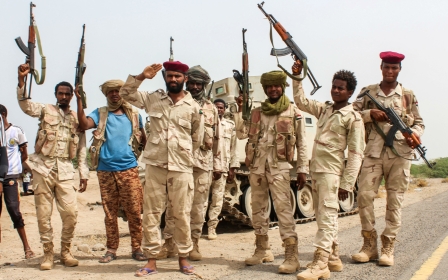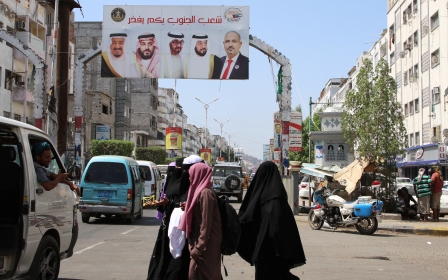'If Houthi shelling does not kill us, the diseases will': Yemenis in besieged Taiz bemoan neglect
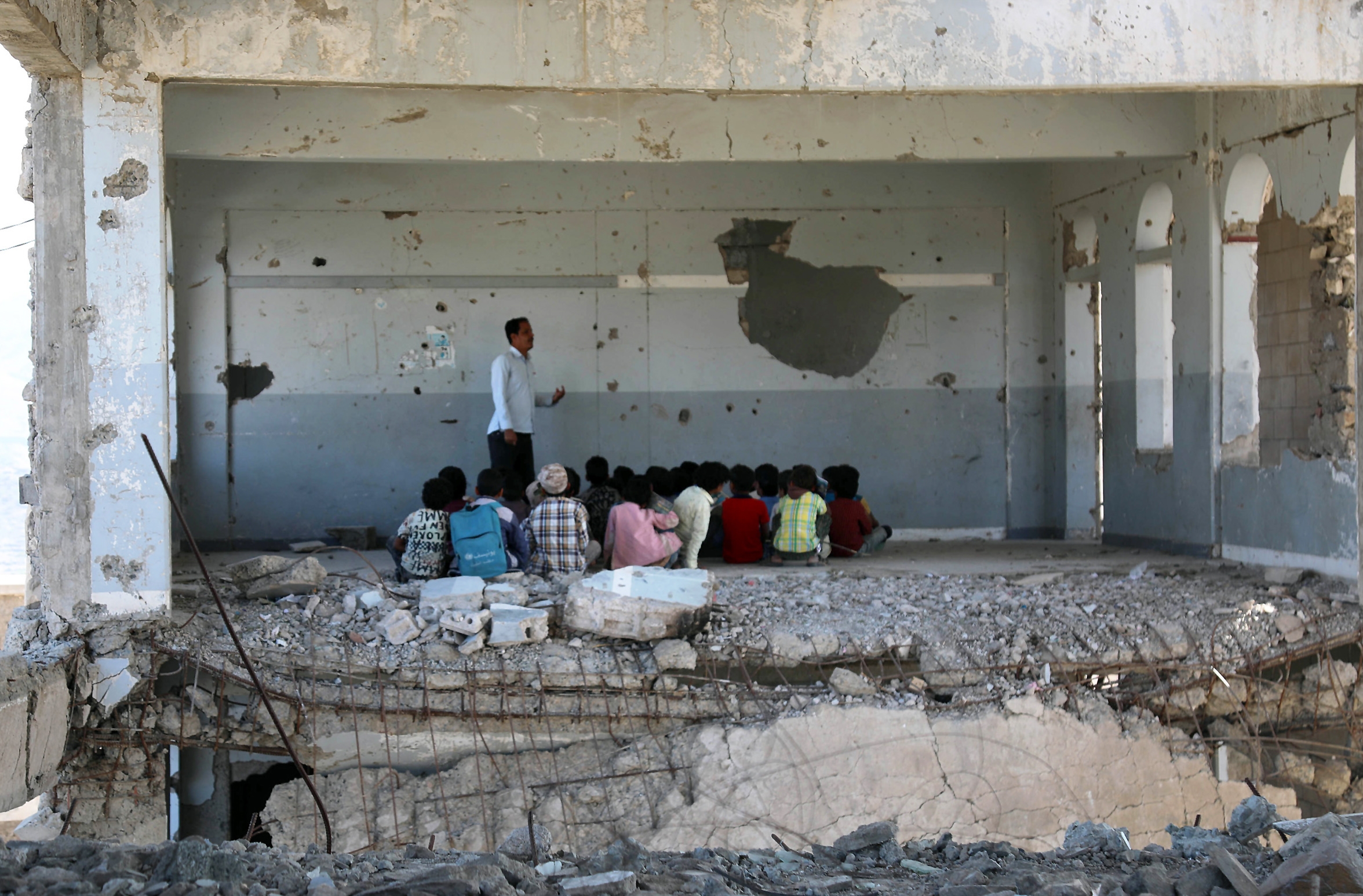
Every Saturday for three weeks, Asem Ali has been going to Gamal Street in central Taiz with his neighbours to protest.
They have one goal in mind: to get attention and help for their impoverished city from Yemen's government, which they say is corrupt from top to bottom.
In 2015, a Western-backed coalition spearheaded by Saudi Arabia and the United Arab Emirates (UAE) intervened in Yemen trying to restore the internationally recognised government ousted from power by Houthi rebels.
The city of Taiz, which is controlled by pro-government forces supported by the coalition, is mainly under siege by the rebels.
“We have been living under siege since 2015, and our military leaders are busy sharing money laundered from taxes, our governor is enjoying his life in Egypt, and no one is talking about Taiz’s suffering,” Ali, a 43-year-old local resident, told Middle East Eye.
New MEE newsletter: Jerusalem Dispatch
Sign up to get the latest insights and analysis on Israel-Palestine, alongside Turkey Unpacked and other MEE newsletters
Yemen's third largest city, Taiz has received surprisingly little attention from the government since the war broke out, and residents complain that no one seems to care about the sufferings they endure.
As a bus driver, Ali regularly travels on the only road that links Taiz province, on the western coast, with Yemen's other governorates.
He says journeys that used to take 15 minutes before the siege now take up to four hours, and only vehicles deemed fit enough are allowed on the road.
'There is rubbish everywhere'
More disturbingly, Ali says he has witnessed the loss of civilian lives in Taiz province nearly every day.
The latest incidents he saw took place earlier this week, when a shell fell on a bus, and another targeted children in al-Silw district.
Despite Taiz suffering from a lack of basic services such as water, electricity, and healthcare, the welfare of the city’s civilians is not a priority for the government, Ali claims.
He also criticises the military for occupying schools in Taiz, depriving thousands of students of their education.
“Our government is busy signing agreements with militias in Sanaa and Aden, and they do not have time to sign an agreement for Taiz,” he says, adding that local officials pocket the city's income but do not pay for any essential services for its residents.
“If the Houthis' shelling does not kill us, the diseases will, as there’s no proper healthcare and no water, but there is rubbish everywhere,” Ali says.
So far, there has been no official reaction to the protests in Taiz, but Ali and other demonstrators promise to continue their efforts until their demand for new leadership in the city is met.
Impoverished Taiz seen as a 'burden'
Last month in Riyadh, a Saudi-brokered deal that would merge the Yemeni government of President Abd Rabbuh Mansour Hadi and the separatist Southern Transitional Council (STC) into a unity government.
The STC, which is backed by the UAE, has been fighting to achieve independence for the south since it was established in 2017. South Yemen was an independent state between 1967 and 1990, when it merged with the north.
Despite reunification, agitation for independence continued, intensifying with the outbreak of the Yemeni war in 2015.
October's deal had raised hopes that one step towards a solution to Yemen's conflict was on the horizon.
But some residents say that because Taiz is a city of little wealth, no side is interested in looking after it.
Resident Muaath Dubaa believes poor areas like Taiz are seen as a “burden” by the Yemeni government and warring parties, because they would make a loss there.
“We’ve seen agreements over Hodeidah, Aden and even Mocha, which belongs to Taiz [province], as all of these areas generate huge incomes from the seaports,” he tells MEE.
Before the start of the war, the Mocha district was the biggest income generator in the province. Now, it is under the control of forces loyal to Hadi, which advanced from Aden with the support of the Saudi-led coalition.
In the eyes of the Yemeni government, Mocha is part of the western coast, and is seen as separate from Taiz city, which is still under rebel siege.
“The Houthis took over Taiz’s al-Hawban area, where the largest factories of Yemen are based," Dubaa says.
"The coalition took over Mocha seaport, and they left Taiz city to suffer the siege, shelling and a lack of all basic services.”
He wants the government to bring in the military to free Taiz from rebel control.
“I hope the government will take the Taiz issue into consideration and plan for a peaceful breaking of the siege,” he says.
“I hope it will stop behaving like a party in war and start caring about all liberated areas."
Besieged areas not a 'priority'
Another resident, Yasser Derhem, points out that Taiz is not the only besieged city neglected in the agreements signed by the warring sides.
“The government only cares about strategic areas like Aden, Hodeidah seaport and Shabwa, and it doesn't prioritise besieged areas in the agreements,” he told MEE.
“Al-Duraihimi district [in the Hodeidah governorate] has been under siege since January 2017 and civilians regularly fall victims [to attacks], but the government doesn’t talk about it, even when its residents suffer just like the people here in Taiz.”
Yemen’s government does intend to free besieged areas across the country, but it is not a “priority” just yet, a source in the information ministry told MEE.
Hadi's government and the Saudi-led coalition are currently solving disagreements with the STC, so the liberation of besieged areas is not topping the list, according to the source who spoke on condition of anonymity.
“Breaking the siege needs modern weapons and intervention by Saudi-led air strikes, and that is not a priority these days,” he said.
The government's priority, he explained, is to “liberate” areas where the STC still reigns.
“Taiz is under the control of the government and there's no concern about it," he said.
"But Aden is under the control of the STC, so we need the government to return to Aden and then it will lead the liberation of new areas based on the Riyadh agreement.
“Pro-Hadi forces liberated many areas in Taiz city during the past four years, and we hope to see the forces break the siege on the city from all directions. But that’s not easy at all.”
The source also said that breaking the siege of Taiz was one of the issues discussed at the Stockholm peace talks last year, but at the moment there were other more important places than the southwestern city - such as the city of Hodeidah.
“No one denies the corruption, but it is a normal occurrence in wars, however now is not the time to fight corruption. This can be done once the liberation of the province is completed," the source said in reference to the protests in Taiz.
Meanwhile, Ali, who calls Taiz home, called on the government to try living his life under siege and "feel our suffering".
“I hope the government returns to Taiz just for one month, so it can feel how we feel. Then it will prioritise Taiz’s issues over many others,” he said.
Middle East Eye delivers independent and unrivalled coverage and analysis of the Middle East, North Africa and beyond. To learn more about republishing this content and the associated fees, please fill out this form. More about MEE can be found here.


